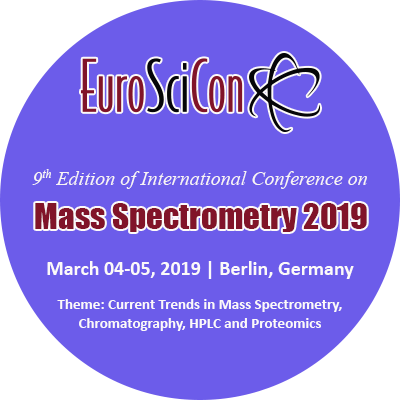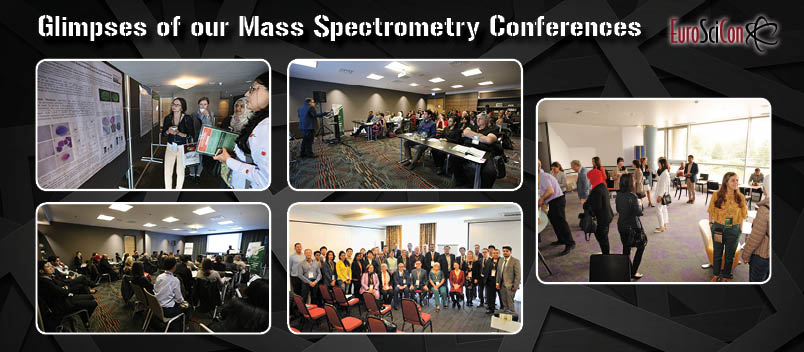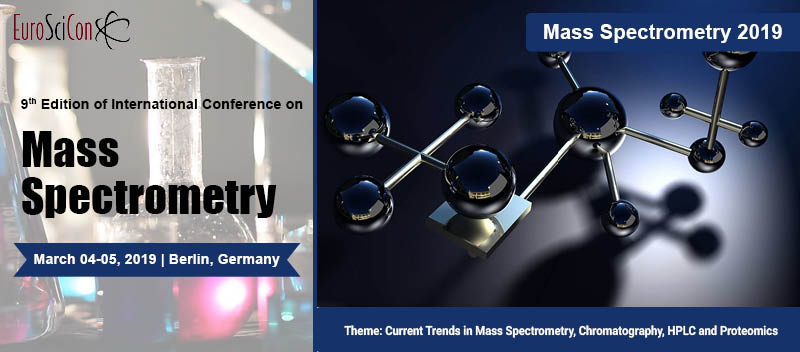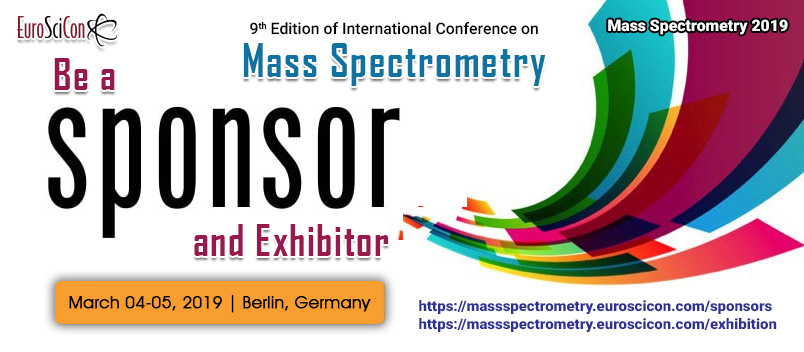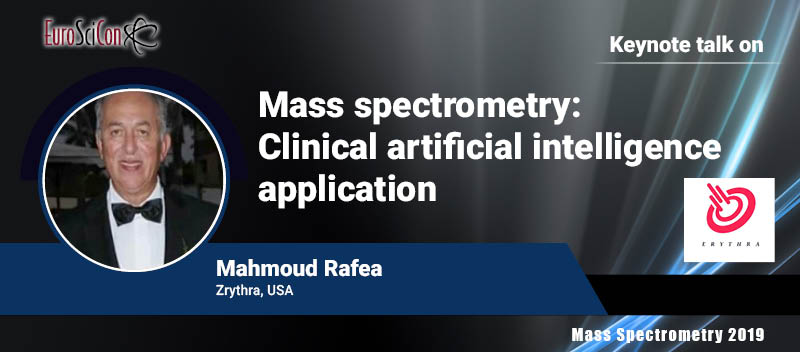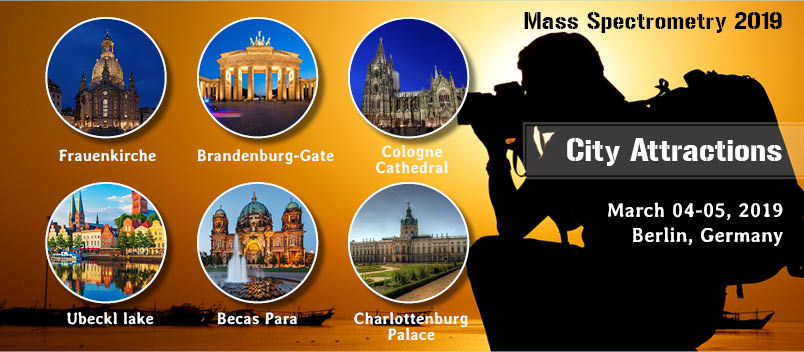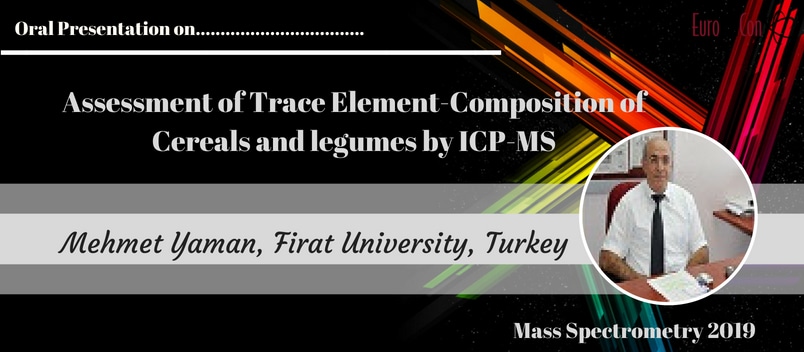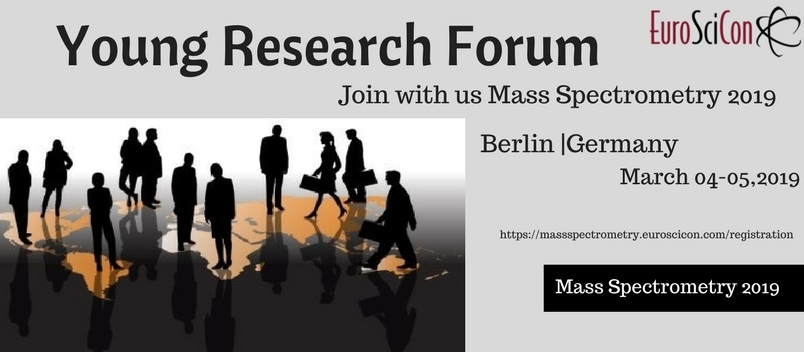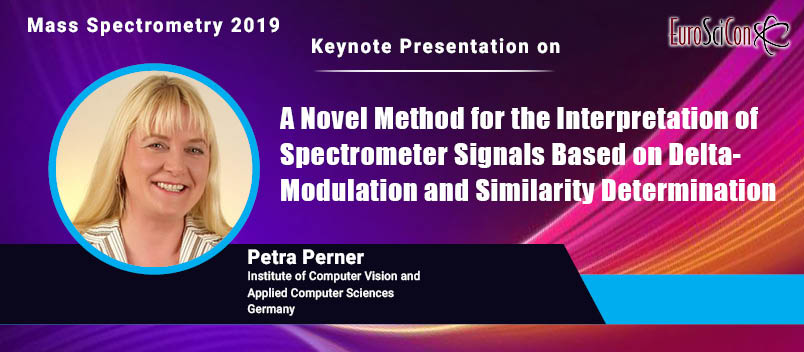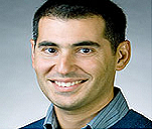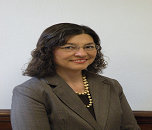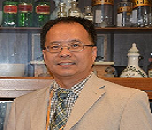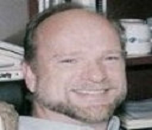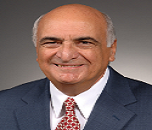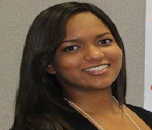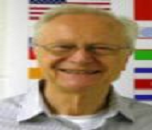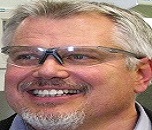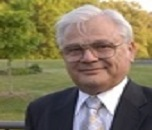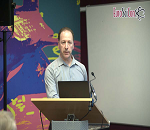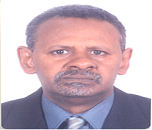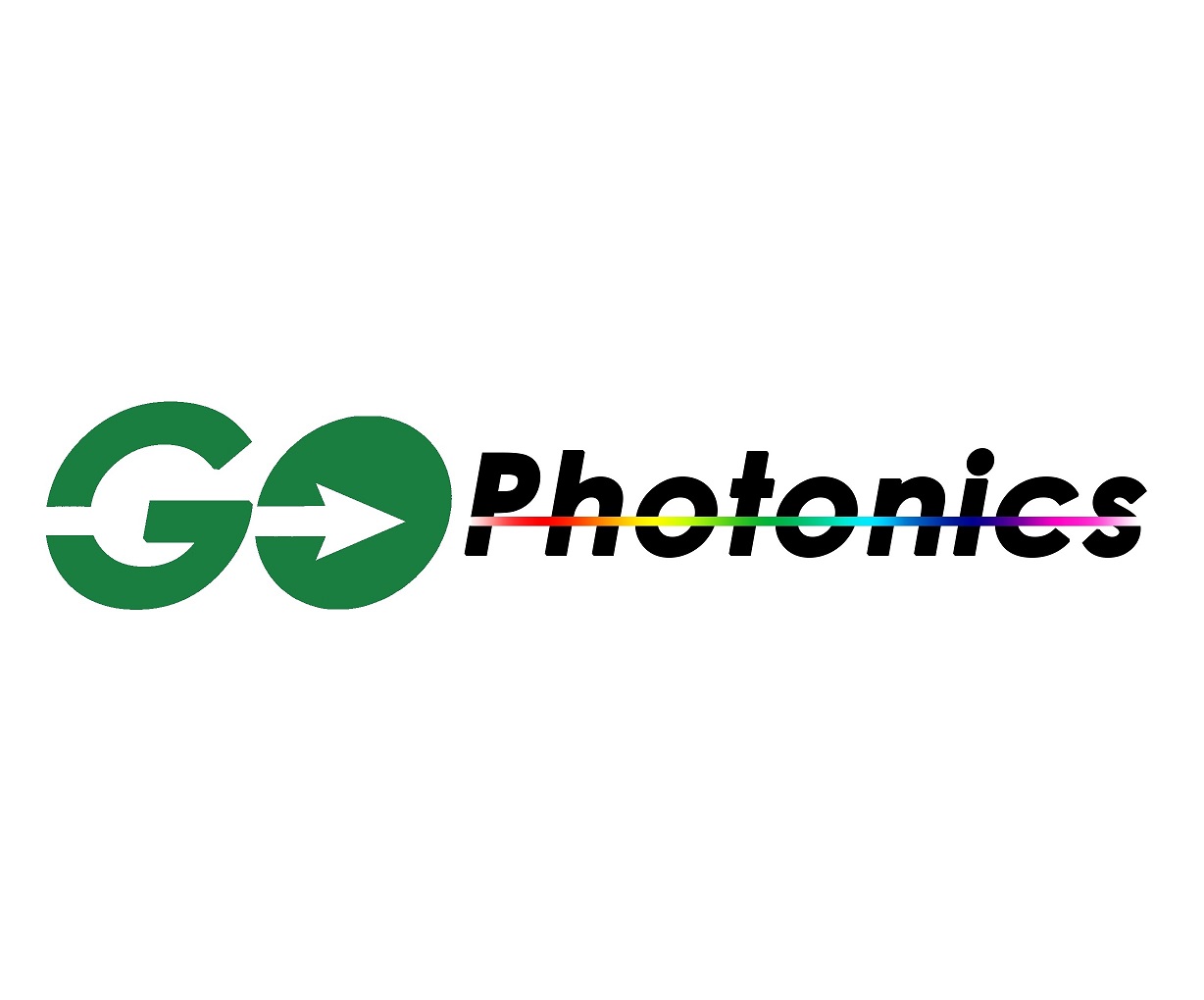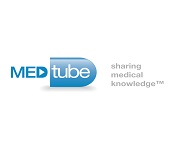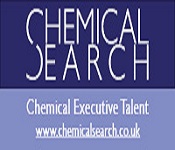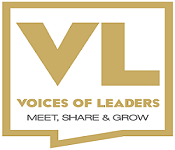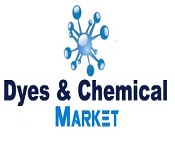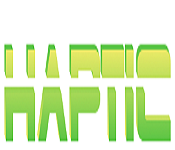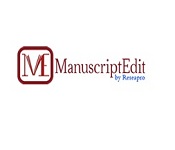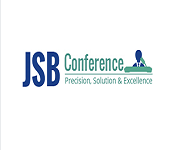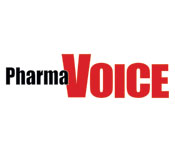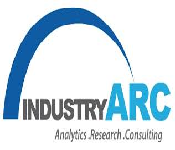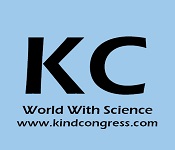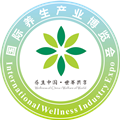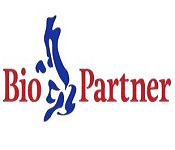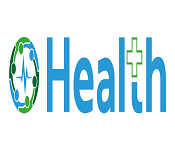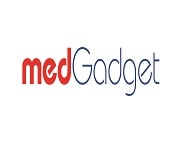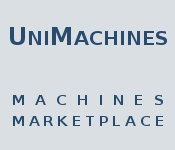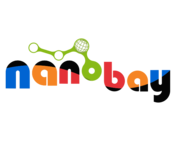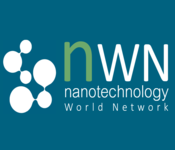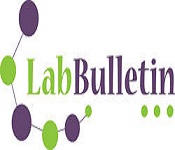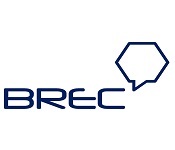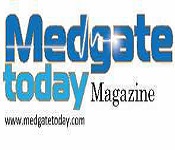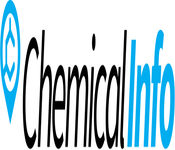Mass Spectrometry 2019
About Conference
EuroSciCon Invite you in Berlin, Germany to join the 9th Edition of International Conference on Mass Spectrometry during March 04- 05, 2019. We warmly request all the participants who are interested in sharing their knowledge in “Current Trends in Mass Spectrometry, Chromatography, HPLC and Proteomics”. Mass spectrometry (MS) is instrumental tool used in recognizing the mass of the molecules and molecular building block.
By detection of different range of spectra, we can evaluate the mass of the molecule. Initially we must vaporize the sample electron beam bombards the vapors then it will transfer in ions it will according to mass in two stages – acceleration and deflection. Acceleration is simple attraction and Deflection is the magnetic bit. That bit will measure by mass spectrometry which will be helpful to evaluate the mass of the molecule.
Mass Spectrometry has a wide range of application in the field of chemistry and pharmaceutical. It uses in pharmaceutical field, drug discovery, combinational chemistry, pharmacokinetics, drug metabolism, clinical diagnosis, neonatal screening, hemoglobin analysis, drug analysis, drug testing. It also uses to measurement of water quality, food contamination, oil composition, analysis of protein and peptides. It also various application in the field of organic chemistry, polymer chemistry, analytical chemistry, pharmacognosy, proteomics, biochemistry, chromatography.
Mass Spectrometry 2019 is a new platform for all scientist to globalize their research in front of global leaders. We welcome all expert to share their new research and ideas. Euroscicon the leading life science events company welcome you to attend the remarkable scientific program 9th International Conference on Mass Spectrometry in the city of education and culture @Berlin, Germany.
Sessions / Tracks
Track 1: Mass Spectrometry Applications In Organic Chemistry
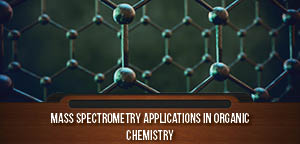
Organic Chemistry is a brunch of chemistry related with structure properties, and reactions of organic compound and materials. Mass Spectrometry is use of analysis molecular mass of higher energy organic compound. Mass Spectrometry is use to determine the stature of natural product, organic compound, that is helpful in chemical reaction.
Track 2: New Advances and Development in Mass Spectrometry
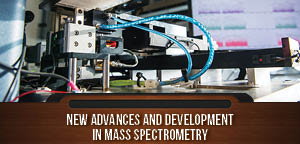
Mass Spectrometry is important Chemical analysis method. Mass Spectrometry is a various application in the field of chemistry and pharmaceutics. In pharmaceutical Industry and drug analysis and Mass Spectrometry development is more. Molecular mass of a compound is important in determination of Character of a compound. In treatment of cancer mass spectrometry paly a important role. SimGlycan is software which use for evaluation for Mass spectrometry.
Track 3: Mass Spectrometry Applications
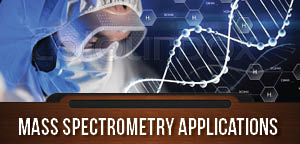
Mass spectrometry is a powerful analytical technique with a of different applications in biology, chemistry, and physics. It uses for evaluation of protein sequence, cell structure, Analysis of Glycans, Lipids, Proteins and Peptides, Oligonucleotides, organic chemistry , polymer chemistry , evaluation of structure, it has application in disease characterization and biomarker investigations, examination of ionic-molecular interactions, determination of the abundance of isotopes in nature and in atomic reactions, determination of the atomic masses of stable and radioactive isotopes, examination of surfaces and modification of surfaces, ion implantation, Geology and Cosmology, especially age determination, Examination of the upper atmosphere and space research.
Track 4: Mass Spectrometry Applications in Pharmaceutical Industry
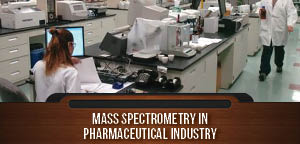
Mass Spectrometry is a powerful method in pharmaceutical industry. Pharmaceutical industry they discovers the drug and develops, produces for use as medications. Mass Spectrometry is drug analysis method. By analysis the method we check the strong ness of the drug. Mass Spectrometry is a various application in drug metabolism, Pharmacokinetics and Pharmacody, preclinical and clinical development.
Track 5: Spectroscopy
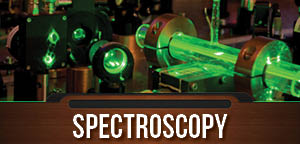
Spectroscopy is technique of the interaction between matter and electromagnetic radiation. Different type of spectroscopy is there X Ray photoelectron spectroscopy, Infrared absorption spectroscopy, Ultraviolet and visible absorption spectroscopy, Nuclear magnetic resonance spectroscopy, Raman spectroscopy. Spectroscopy in Biomedical Sciences uses in astronomy. Sensitivity and selectivity.
Track 6: Mass Spectrometry Applications in Clinical Diagnostics
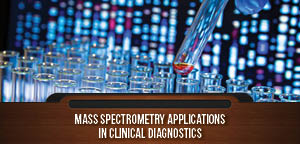
Now a days Mass Spectrometry is use in evolution of elements composition, determine the mass of the compound. In clinical diagnosis it uses for disease screening, diagnosis of disease and metabolic disorders, identifying drug toxicity and poisoning, monitoring of drug therapy, discovering new biomarkers. traditional clinical analysis systems, medicaments. Quantitative Excellence for Assays,
Track 7: Capillary Electrophoresis
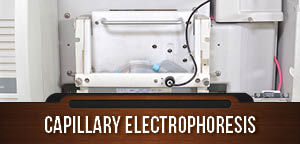
Capillary electrophoresis analysis of peptide/proteins. Capillary is a small tube which place between two buffer reservoirs after that electric field applied separation depend on electrophoretic mobility and electro osmosis. It uses for purity and structural confirmation to a micro preparative technique, Hemoglobin electrophoresis, DNA sequencing, analysis of polymorphism, Forensic application. CE-MS combines advantages of both CE and MS to provide high separation efficiency and molecular mass information in a single analysis.
Track 8: Chromatography
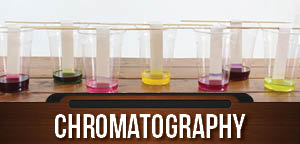
Chromatography technique of separating the chemical substances into its individual components. Various type of chromatography is there Column chromatography, Ion-exchange chromatography, Affinity chromatography, Paper chromatography, Thin-layer chromatography, Gas chromatography. In Chemical industry chromatography is an important technique has lot of application. Chromatography has lot of application in food industry, Forensic Science, Molecular Biology Studies, Polymer Synthesis, Bioinformatics.
Track 9: Tandem Mass Spectrometry
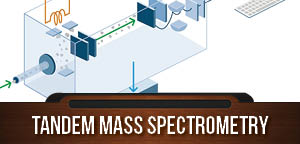
Tandem Mass Spectrometry involves many stages to break down selected into fragments. There are different type tandem mass spectrometers are there triple stage quadrupoles, quadrupole/time-of-flight, quadrupole-linear ion trap hybrid instruments, time-of-flight-time-of-flight. It uses in Peptides sequencing, Oligosaccharides sequencing, glycolipids sequencing.
Track 10: Maas Spectrometry in Environmental Analysis
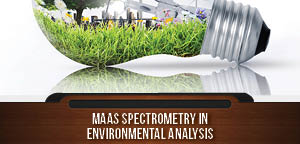
Environmental Analysis is referring the part of chemistry which is related with environment. The process examines all the internal or external components, which has an influence on the performance of the organization. The steps involved in environmental analysis identifying, Scanning, Analyzing, Forecasting. Mass Spectrometry is a technical platform for analysis of environmental chemicals. It help is several ways Protect Human Health by Detecting Environmental Contaminants, Persistent Organic Pollutants, Emerging Contaminants, From Emerging to Emerged.
Track 11: Protein Mass Spectrometry
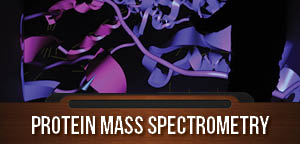
Protein Mass Spectrometry is related with identification of protein. There are two method of ionization of electrospray ionization and matrix assistant laser desorption. Protein synthesis is important in human life. Protein molecule are work as catalyze in biochemical reactions. Hormones are a kind of protein that make connection between cell to cell and regulated the body function. Mass Spectrometry help to protein synthesis. That has lot of function in human body.
Track 12: Ionization Techniques Mass Spectrometry
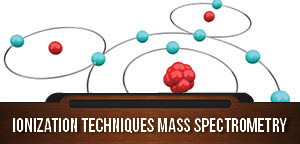
In Mass Spectrometry analysis many ionization techniques are there mainly electron impact (EI) and Fast Atom Bombardment (FAB).Now a day it not use to much but environmental analysis it work to check the atmospheric pressure. In environmental analysis it has lot of application. It also use in Qualitative and quantitative applications, check the purity of the sample , evaluation of organic and inorganic biological molecule, determination of mass of peptides, protein.
Track 13: Mass Spectrometry Instrumentation
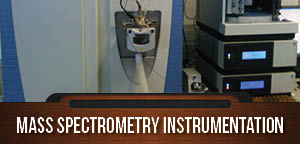
A Mass Spectrometer generates multiple ions from the sample under investigation, it then separates them according to their specific mass-to-charge ratio (m/z), and then records the relative abundance of each ion type. The instrument consists of three major components. Ion Source, Analyzer, Detector System. A Mass Spectrometer should always perform the following processes:
Produce ions from the sample in the ionization source Separate these ions according to their mass-to-charge ratio in the mass analyzer Eventually, fragment the selected ions and analyze the fragments in a second analyzer Detect the ions emerging from the last analyzer and measure their abundance with the detector that converts the ions into electrical signals Process the signals from the detector that are transmitted to the computer and control the instrument using feedback.
Track 14: Forensic Analysis
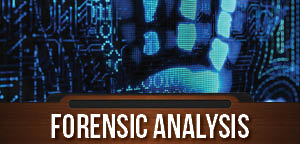
Mass Spectrometry in Forensic Analysis is a technology provides a powerful tool for Forensic studies. For forensic researchers investigating their samples for unknown compounds, drug metabolites, chemicals or hazards, novel psychoactive substances that have never been previously detected or characterized. The role of Mass Spectroscopy in forensic science may be characterized as either molecular or elemental analysis. comparatively little volatile nonionic molecules found in a very sort of forensic samples may be analyzed with electron and chemical ionization of single-stage mass analyzers that give relative molecular mass and structural data. Non-polar and polar molecules and their metabolites habitually found in biological matrices along with alternative analytes of forensic interest may be determined by using Electrospray.
Track 15: Mass Spectrometry in Medicine
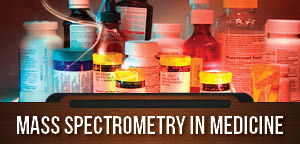
Mass Spectrometry in medicine is the most important area to study for the development of medicines. Mass Spectrometry is an analytic technique widely used many laboratories for the development of laboratory medicine. Various types of Mass Spectrometers are used in order to get improvements in assay performance that is occurring rapidly in areas such as toxicology, endocrinology, and biochemical genetics. Mass Spectrometry is a diagnostic system with high specificity and developing vicinity in research facility prescription. Different sorts of Mass Spectrometers are being utilized as a part of an expanding number of clinical research facilities around the globe. Mass Spectrometry has contributed altogether to the development of restorative science in late decades, especially in connection to medication advancement, in-vitro diagnostics, dietary and natural drug.
Track 16: Imaging Mass Spectrometry
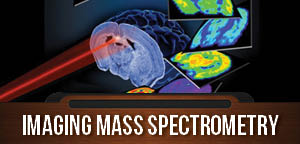
Imaging Mass Spectrometry is a technology that combines most advanced analytical techniques for the analysis of biological molecules with spatial fidelity. An effective approach for imaging biological specimens in this way utilizes Matrix-Assisted Laser Desorption Ionization Mass Spectrometry. The mass-to-charge ratio of the ions are measured using a Mass Spectrometer over an ordered array of ablated spots. Imaging Mass spectrum Analysis (IMS) encompasses a spread of techniques that change the chemical imaging of analytes from atoms and little molecules to intact proteins directly from biological tissues. Imaging Mass Spectrometry is remodeling specific areas in research project with its distinctive combination of chemical and biological information. Innovations in instrumentation and imaging protocols can create this approach at several stages of the drug discovery method, as well as medical target screening and evaluating the distribution of drug and drug metabolites in cells and tissues.
Track 17: Analytical Chemistry
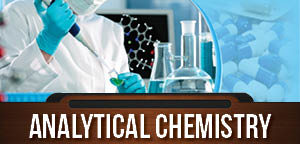
Analytical Chemistry is the science of obtaining, processing, and communicating information about the composition and structure of matter. Analytical Chemistry studies and uses instruments and methods used to separate, identify, and quantify matter. In practice separation, identification or quantification may constitute the entire analysis or be combined with another method. Separation isolates analytes. Qualitative Analysis identifies analytes, while Quantitative Analysis determines the numerical amount or concentration. Analytical chemistry consists of classical, wet chemical methods and modern, instrumental methods. Classical qualitative methods use separations such as precipitation, extraction and distillation. Identification may be based on differences in color, odor, melting point, boiling point, radioactivity or reactivity. Classical quantitative analysis uses mass or volume changes to quantify amount. Instrumental methods may be used to separate samples using Electrophoresis or field flow fractionation. Then Qualitative and Quantitative analysis can be performed, often with the same instrument and may use light interaction, heat interaction, electric fields or magnetic fields . Often the same instrument can separate, identify and quantify an analyte. Analytical chemistry is also focused on improvements in experimental design, chemo metrics, and the creation of new measurement tools. Analytical chemistry has broad applications to forensics, medicine, science and engineering.
Track 18: Proteomics
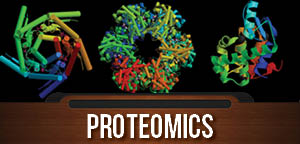
Market Analysis
Mass Spectrometry is an analytical technique used to determine the molecular weight of compounds by separating molecular ions based on their mass and charge. Continuous technological advancement has led to the growth in the application of Mass Spectrometry. Mass Spectrometry has a myriad of applications in biology, physics, chemistry, clinical medicine and space exploration. The growing array of applications of Mass Spectrometry is driving the global Mass Spectrometry market. The global Mass Spectrometry market based on application has been segmented into pharmaceuticals, biotechnology, industrial chemistry, environmental testing, food & beverage testing and others. Pharmaceutical application segment dominated the global Mass Spectrometry market due to factors such as rising usage of Mass Spectrometry in drug discovery, drug-drug interaction and other pharmaceutical and clinical medicine applications. Biotechnology and food & beverage testing are expected to be the fastest growing segment due to rising usage of Mass Spectrometry techniques in rapid microbiology testing of food and beverages and other industrial microbiology testing which would further fuel the growth of Mass Spectrometry market during the forecast period. On the basis of platforms, the Mass Spectrometry market is segmented into Hybrid Mass Spectrometry and Single Mass Spectrometry. The Hybrid Mass Spectrometry segment is further divided into triple quadrupole, quadrupole TOF, and Fourier Transform Mass Spectrometry (FTMS). While single Mass Spectrometry is further sub-segmented into Time-of-Flight (TOF) MS, Orbitrap MS and Quadrupole The hybrid Mass Spectrometry segment held the largest share in the global Mass Spectrometry market by platform. The demand for Mass Spectroscopy systems is rising due to the expanding applications in life sciences and pharmaceutical industries as wells as the substantial demand from the chemical and petrochemical industries. Moreover, the advent of these systems in tandem with chromatography techniques such as Gas Chromatography/Mass Spectrometry (GC/MS), and Liquid Chromatography/Mass Spectrometry (LC/MS) has resulted in their widespread adoption.
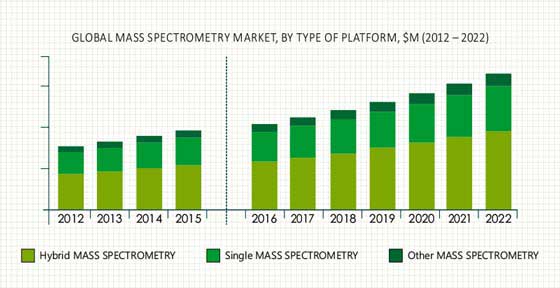
According to the latest reports “Mass Spectrometry Market – (Platform Type – Hybrid Mass Spectrometry: Triple Quadrupole Mass Spectrometry; Single Mass Spectrometry: Time-of-Flight (TOF) Mass Spectrometry, Orbitrap Mass Spectrometry, Quadrupole; Others ; Application Type – Pharmaceutical, Biotechnology, Industry Chemistry, Environmental Testing, Food & Beverages Testing and Others); Market Growth, Future Prospects and Competitive Analysis, 2017-2025” the market was valued at USD 5.3 Bn in 2015, and is expected to reach USD 10.5 Bn by 2025, expanding at a CAGR of 7.7% from 2017 to 2025.
In terms of geographic, North America rules the International Mass Spectrometry business. This is due to increased government expenditure in biotechnology and biomedical areas. In addition, increased research in the field of proteomics is also supporting in the growth of Mass Spectrometry in the region. The United States represents the massive business for Mass Spectrometry procedures followed by Canada in North America. In Europe, France, Germany, Italy, Spain and the U.K. holds major share of Mass Spectrometry market. However, Asia is expected to show huge growth rates in the next five years in worldwide Mass Spectrometry business. This is due to many companies constructing their manufacturing and research facilities in the region. In addition, increasing number of meetings and exhibitions by manufacturing companies to promote Mass Spectrometry technology is also contributing in the growth of mass spectrometry business in the region. India japan and china are expected to be the fastest growing Mass Spectrometry markets in Asia. The key companies operating in the global Mass Spectrometry market include Danaher Corporation, Shimadzu Corporation, Waters Corporation, Thermo Fisher Scientific Inc., Bruker Corporation, Endress+Hauser Inc, LECO Corporation, Agilent Technologies Inc., PerkinElmer Inc., Dani Instruments S.p.A, Protea Biosciences Group Inc, Microsaic Systems PLC, Jeol USA Inc., and Elico Ltd. The Global Mass Spectrometry market witnesses high competitive intensity as there are many big and small firms with similar product offerings. These companies adopt various strategies (collaborations, acquisitions, new product launches and geographic expansions) to increase their market shares and to establish a strong foothold in the global market.
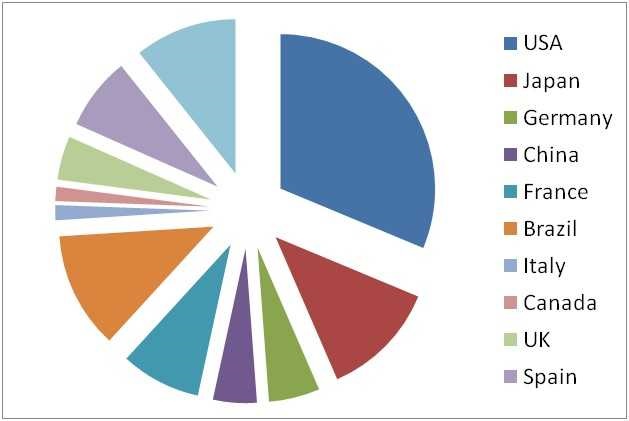
Scope of the Report:
Mass Spectrometry market into the following segments:
Mass Spectrometry Market, by Platform
Single Mass Spectrometry
Quadrupole
Time-of-flight (TOF)
Ion trap
Hybrid Mass Spectrometry
Triple Quadrupole
Quadrupole TOF
Fourier Transform Mass Spectrometry (FTMS)
Others (Magnetic Sector, Portable MS, and Inductively Coupled Plasma Mass Spectrometry
Mass Spectrometry Market by Application
Pharmaceuticals
Biotechnology
Industrial Chemistry
Environmental Testing
Food & Beverage Testing
Others
Mass Spectrometry Market by Region
North America
USA
Canada
Europe
Germany
UK
Spain
Italy
France
Japan
China
India
Asia Pacific
Learn More
Top Mass Spectrometry Universities Worldwide:
Mass Spectrometry Universities:
University of Maryland | University College London | University of Minnesota | Mass Spectrometry | Imperial college of London | Oregon State University | University of Lowa Wake | Forest University | Penn State College | Boston University | Trinity College | Hunter College | King College Old Dominion University | University of Calcutta | University of Exeter | Chemistry | Baylor College | University of Leicester | University Of Montana | Swansea University | Lycoming Colleges | National College | University of California | UCD Science Centre | Skaggs the School of Pharmacy | Analytical Chemistry| The University of Houston | Biyani Colleges | Chromatography | University of Cambridge | University Of Kentucky | University of Vermont | University of Michigan--Ann Arbor | Jilin University | Nankai University | University of Toronto | Tohoku University | Separation Techniques | Princeton University | University of North Carolina | University of Minnesota | National Taiwan University | University of Pennsylvania | Seoul National University | Cornell University | University of California
Europe Mass Spectrometry Universities:
Univeristy of Graz | University of Innsbruck | Montanuniversität Leoben | Johannes Kepler University | Chemistry | Ghent University | RuÄ‘er BoškoviÄ Institute | University of Split | University of Zagreb | Charles University | Palacký University | University of Pardubice | University of Copenhagen | Chemical Physics | Aalto University | University of Grenoble | Institute for Research in Organic Fine Chemistry | Proteomics | Mass Spectrometry | Chemical Pathology | National Graduate School of Engineering Chemistry | Spectrometry| Lille Univeristy | University of Lyon | University of Oviedo | Analytical Chemistry | University of Santiago de Compostela | University of Valladolid | University of Vigo | Crystallography | University of Zaragoza | Stockholm university | University of Bradford | University College Cork | Masaryk University | Robert Gordon University | Sheffield Hallam University | University of Southampton | University of Warwick
USA Mass Spectrometry Universities:
Brigham Young University | California State University | California State University | Analytical Chemistry | Case western Reserve University | Clarkson University | Cleveland State University | Separation Techniques | Florida State University | Georgetown University | The George Washington University | Governors State University | Analytical Chemistry | Howard University | Illinois Institute of Technology | Chromatography | Indiana University Bloomington | EuroSciCon | Kent State University | Marquette University | Miami University | Analytical Chemistry | Northeastern University | Old Dominion University | Oregon State University | Purdue University | Chemistry | New Brunswick Piscataway | Seton Hall University | South Dakota State University | Chemical Physics | Stevens Institute of Technology | Tufts University | University of Cincinnati | University of Georgia | University of Louisville | Mass Spectrometry | University of Maryland | University of Missouri-Columbia
Asia Mass Spectrometry Universities:
Nanyang Technological University | Tsinghua University | National University of Singapore | Chemistry | Peking University | University of Tokyo | Zhejiang University | Nanjing University | Analytical Chemistry | Kyoto University | Fudan University | University of Science and Technology of China | Chromatography | Osaka University | Korea Advanced Institute of Science and Technology | Separation Techniques | East China University of Science and Technology | Analytical Chemistry | Dalian University of Technology | Mass Spectrometry | Xiamen University | Jilin University | Nankai University | Japan Tohoku University | National Taiwan University | Chemical Physics | Seoul National University | Chemical Pathology | Shanghai Jiao Tong University | King Abdullah University of Science & Technology | Mass Spectrometry | Hong Kong University of Science and Technology | EuroSciCon | National Tsing Hua University | King Abdulaziz University | Indian Institute of Technology
Africa Mass Spectrometry Universities:
University of capetown | University of Pretoria | University of south Africa | Spectrometry | University of the Witwatersrand | University of KwaZulu-Natal | Universiteit Stellenbosch | University of Johannesburg | Crystallography | North-West University | University of Nairobi | Proteomics | University of the Western Cape | University of Ibadan | Chemical Pathology | Cairo University | Chromatography | Rhodes University | Mass Spectrometry | Nelson Mandela Metropolitan University | Chemistry | Alexandria University | Analytical Chemistry | University of Khartoum | University of Fort Hare | Federal University of Technology | Mass Spectrometry | The German University in Cairo | University of Botswana | University of Abou Bekr Belkaïd | University of Ilorin | Benha University | Jomo Kenyatta University of Agriculture and Technology | Assiut University | Sudan University of Science and Technology | Helwan University | University of Abuja | University of Zimbabwe | Vaal University of Technolog | Chromatography.
British Mass Spectrometry Society | Dutch Society for Mass Spectrometry | Finnish Mass Spectrometry Society | Separation Techniques | French Society for Mass Spectrometry | German Society for Mass Spectrometry | Mass Spectrometry | Irish Mass Spectrometry Society | Italian Society of Mass Spectrometry | Korean Society for Mass Spectrometry | Chemistry | Norwegian Society for Mass Spectrometry | Polish Mass Spectrometry Society | Analytical Chemistry | Russian Society for Mass Spectrometry | Chromatography | Spanish Society for Mass Spectrometry | Chemical Physics | Swiss Group for Mass Spectrometry | Taiwan Society for Mass Spectrometry | European Proteomics Association | European Society for Separation Science | Analytical Chemistry
American Society for Mass Spectrometry | Chemistry | Brazilian Mass Spectrometry Society | Canadian Society for Mass Spectrometry | Mass Spectrometry | International Mass Spectrometry Foundation | Chromatography | International Association of Forensic Toxicologists | American Analytical Chemistry Laboratories Corporation | EuroSciCon | Analytical Chemistry
China Mass Spectrometry Society | EuroSciCon | Hong Kong Society of Mass Spectrometry | Indian Society for Mass Spectrometry | Mass Spectrometry Society of Japan | Singapore Society for Mass Spectrometry | South African Association for Mass Spectrometry | Chromatography
Mass Spectrometry Conferences:
Euroscicon congress on Biochemistry Conferences & Molecular Biology Conferences, August 5-6, 2019, Paris, France; International Nutritional Biochemistry Conferences, April 08-09, 2019, Paris, France; Mass Spectrometry Conferences; Euroscicon Metabolomics Conferences & Systems Biology Conferences, December 10-11, 2019, Amsterdam, Netherlands; Mass Spectrometry Conferences 2019; International Electrochemistry Conferences, May 27- 28, 2019, Barcelona, Spain; International Conference on Chemistry Research Conferences, December 10-11, 2019, Amsterdam, Netherlands; Euro Mass Spectrometry Conferences; International Conference on Biofuels Conferences and Bioenergy Conferences, March 04-05, 2019, Barcelona, Spain; Chromatography Conferences; Biochemical Conferences & Chemical Engineering Conferences, Oct 10-11, 2019, Osaka, Japan; Separation Techniques Conferences; World Congress on Petroleum Engineering Conferences & Natural Resources Conferences, November 12-13, 2019, Athens, Greece; International Biopolymers Conferences & Bioplastics Conferences, May 29-30, 2019, Singapore; International on Green Chemistry Conferences and Technology Conferences, November 18-19, 2019, Frankfurt, Germany.
International Pure Conferences & Applied Chemistry Conferences, September 27-28, 2019, Toronto, Canada; International Catalysis Conferences and Pyrolysis Conferences, June 06-07, 2019, California, USA; Mass Spectrometry Conferences; International Pharmaceutical Conferences & Bio-Inorganic Chemistry Conferences, Oct 27-28, 2019, California, USA; International Analytical Conferences and Bio analytical Techniques Conferences ,Chromatography Conferences; October 31- November 01, 2019, San Francisco, USA; Chromatography Conferences; International Medicinal Chemistry Conferences & Multi Targeted Drug Delivery Conferences, September 27 28, 2019, Toronto, Canada; Chromatography Conferences; Euro Mass Spectrometry Conferences; International Chemistry Conferences & Drug Designing Conferences, Dec 05-06, 2019, Columbia, Canada; Global Chemistry Conference, February 25-26, 2019, Philadelphia, USA, International Organic Conferences & Inorganic Chemistry Conferences, April 11-12, 2019, Ontario, Canada.
International Polymerization Catalysis Conferences, Flexible Polymer Conferences and Nanotechnology Conferences, July 18-19, 2019, Dubai, UAE; Euro Mass Spectrometry Conferences; Medical And Chemistry Conferences September 12-13, 2019, Singapore; Euro Mass Spectrometry Conferences; Analytical Conferences & Bioanalytical Techniques Conferences, September 19-20, 2019, London, UK; Euro Mass Spectrometry Conferences; Physical Conferences and Theoretical Chemistry Conferences, November 07- 08, 2019, Singapore; Mass Spectrometry Conferences; Green Catalysis Conferences and Sustainable Energy Conferences, November 15-16, 2019, Dubai, UAE; Petrochemistry Conferences , January 30-31, 2019 Bangkok, Thailand; Polymer Conferences and Materials Chemistry Conferences, March 15-16, 2019, Osaka, Japan; Mass Spectrometry Conferences.
International Nanoscience Conferences, Nanotechnology Conferences & Advanced Materials Conferences, November 24-25, 2019, Cape Town, South Africa; Euro Mass Spectrometry Conferences, International Science Technology Conferences and Management Conferences, December 24-25, 2019, Cape Town, South Africa; Mass Spectrometry Conferences, International Mechanical Conferences and Aerospace Conferences, December 24-25, 2019, Cape Town, South Africa; Mass Spectrometry Conferences, International Environment Conferences and Natural Science Conferences, December 24-25, 2019, Cape Town, South Africa; Chemistry Conferences, International Science Conferences, Technology Conferences, Engineering Conferences and Management Conferences, January 24-25, 2019, Cape Town, South Africa, International Pharma Conferences and Food Conferences, January 24-25, 2019 , Cape Town, South Africa; Chemistry Conferences.
Berlin Visa Information
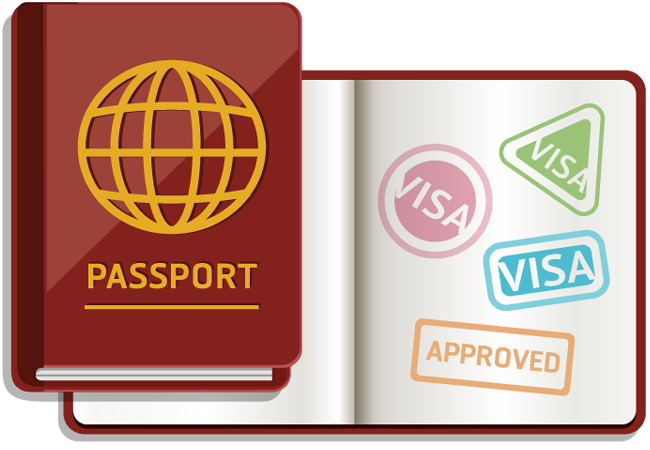
Past Conference Report
Mass Spectrometry 2018 Report
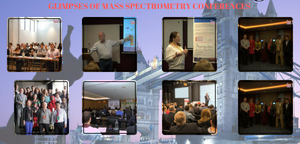
The 8th Edition of International Conference on Mass Spectrometry was held on March 12-13, 2018 in London, UK,with the presence of professional researchers, scientists involved in the development of high-quality education & research in all aspects.
Mass Spectrometry 2018 witnessed an amalgamation of peerless speakers who enlightened the crowd with their knowledge and confabulated on various topics related to the field of Analytical Chemistry and Mass Spectrometry. The highly exalted conference hosted by EuroSciCon was marked with the attendance of renowned and brilliant researchers, business delegates and talented student communities representing more than 20 countries around the world. The conference has tried grounding every aspect related to Mass Spectrometry, covering all the possible research areas.
The conference aimed a parallel rail with theme “Open Discussions on New Innovations, Advancements Applications of Mass Spectrometry”. The meeting engrossed a vicinity of cognizant discussions on Mass Spectrometry, biology, chemistry, physics, clinical medicine, Forensic analysis, Electrophoresis, Chromatography, Environmental Analysis, Advances in Separation techniques, Ionization techniques, Mass Spectrometry applications in Pharmaceutical industry and Clinical diagnostics and Mass Spectrometry technology’s include Tandem Mass Spectrometry, Protein Mass Spectrometry, Analytical Mass Spectrometry, Molecular Mass Spectrometry, Miniature Mass Spectrometry and others. The two days event implanted a firm relation of upcoming strategies in the field of Mass Spectrometry with the scientific community. The conceptual and applicable knowledge shared, will also foster organizational collaborations to nurture scientific accelerations.
We are thankful to all our speakers for encouraging and supporting us to conduct the conference and catapulting the same to pinnacle of success.
We would like to thank our Poster judge Sherry A Tanumihardjo, University of Wisconsin, USA for the evaluation of Poster Presentations.
The meeting was embarked with an opening ceremony followed by Keynote Sessions and followed by series of lectures delivered by Honorable Guests and members of the Keynote forum. The highlights of the meeting were the eponymous lectures, delivered by:
- Gary W Caldwell, Janssen Research & Development, USA.
- Magnus S Magnusson, University of Iceland, Iceland.
- Sherry A Tanumihardjo, University of Wisconsin, USA.
All of them provided their fruitful contributions in the form of highly informative presentations and made the conference a top notch one.
EuroSciCon is prerogative to thank the Organizing Committee Members, Keynote speakers and Chairs on transcribing the plenary sessions and workshop in a diversified and variegate manner to make this conference an enviable artefact.
EuroSciCon offers its heartfelt appreciation to our sponsor “International Journal of Drug Development and Research”. We also express our sincere thanks to all the media partners for the promotion of our event to glory.
Mass Spectrometry 2018 would not have reached the pinnacle if not with the support of International, multi-professional steering committee and coordination of the International Journal of Collaborative Research on International Journal of Drug Development and Research, Der Pharmacia Sinica and Der Chemica Sinica and Insights in Analytical Electrochemistry and Advances in Applied Science Research.
With the grand success of Mass Spectrometry 2018, we are glad to announce our next upcoming conference “9th Edition of International Conference on Mass Spectrometry” which is going to be held in Berlin, Germany during March 04- 05, 2019.
Bookmark your dates…
Hoping to meet you again coming year at Berlin!!!
